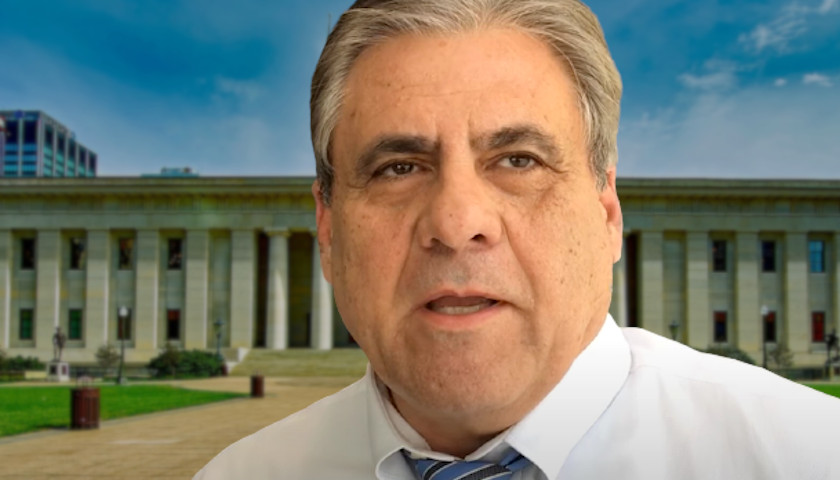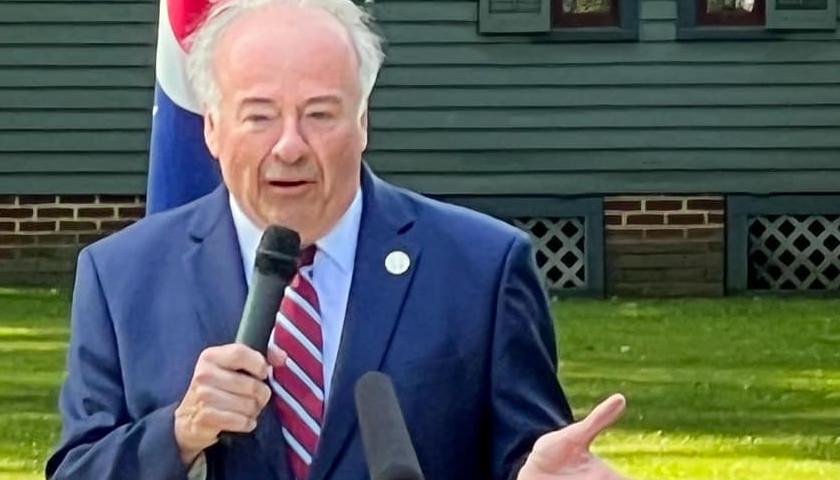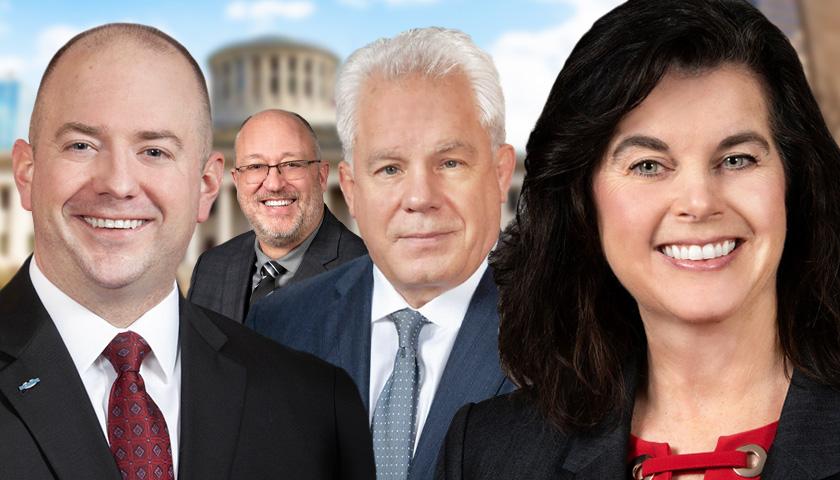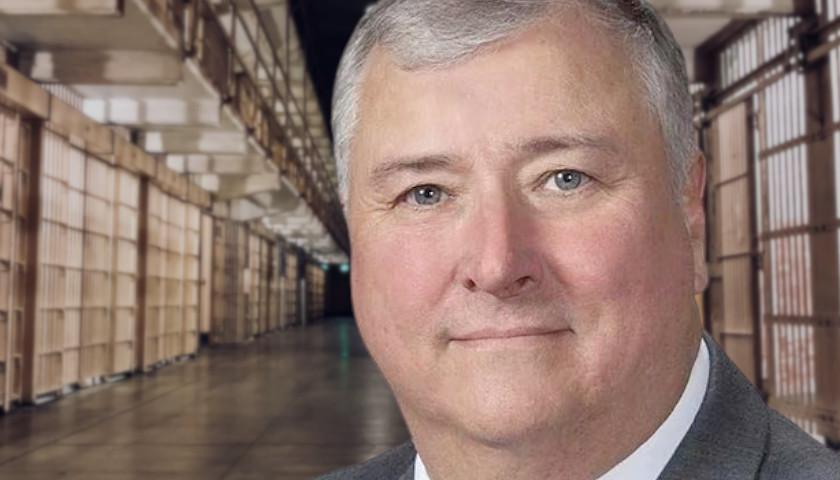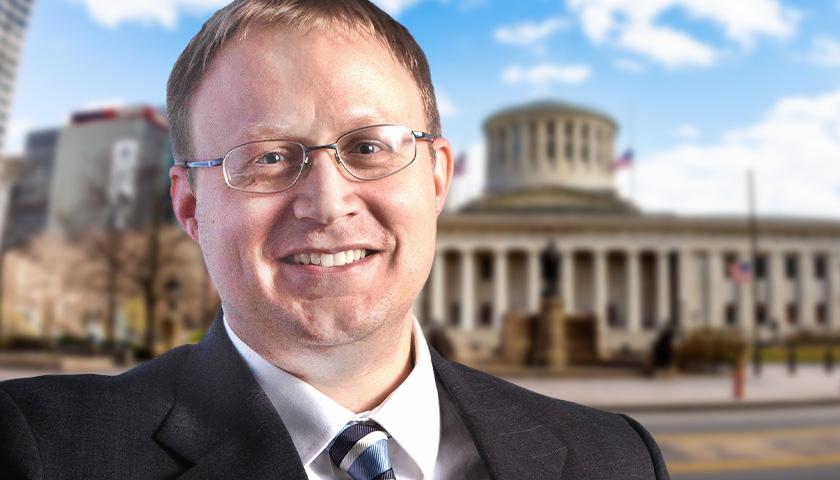COLUMBUS, Ohio – Last July, Neil Clark was arrested by FBI agents after a federal grand jury indicted him along with corporate entity Generation Now, then-Speaker of the Ohio House Larry Householder (R-Glenford), former Ohio Republican Party Chairman Matt Borges, and political operatives Juan Cespedes and Jeffrey Longstreth.
Monday, Clark was found dead in Florida.
Authorities there reported his death on Tuesday, and by Thursday ruled it a suicide.
The July arrests stemmed from an alleged $60M bribery scheme that funneled money from an energy company to elect politicians, installed Householder as House Speaker and ensured passage of a $1B bailout for the company; the effort also defeated a referendum to pull down the law.
Longstreth and Cespedes pleaded guilty, as did Generation Now – Householder’s 501(c)(4) dark money group responsible for dispensing millions from the energy company.
Clark (pictured above), Borges, and Householder all pleaded not guilty.
Just before the Thursday announcement of Clark’s suicide, The Ohio Star interviewed Scott Pullins, a Mount Vernon attorney and 30-year friend of Clark.
Pullins said he wanted to be transparent, noting that he previously worked with Householder and until July 2020, consulted for Longstreth’s company JPL & Associates.
Pullins said Clark was “a great guy who had a great career.”
“I’m not his closest friend but others aren’t speaking out, so I am.” Pullins continued, “I’ve known Neil since 1988. He was a lobbyist and I was the Ohio Executive Director of National Taxpayers Union.”
According to Pullins, Clark “shouldn’t have been charged,” and believes the suicide is due, in part, to the way he was treated by the FBI and U.S. Department of Justice.
The other part – Clark’s business evaporated after his arrest. “Frankly, when I read in the paper that he said he was done with lobbying and political consulting, I thought he could come back from that; he lost all his clients overnight and maybe he didn’t think that.”
The Mount Vernon attorney said after he read through both the original and revised federal indictment – and after talking to Clark’s attorney Will Ireland (who Pullins called one of his “closest friends” in law school) – “I think what happened here, from Neil’s standpoint, the FBI sent out guys posing as hotel developers and potential clients for Neil. He put on a show for them, bragged about access to the Speaker, etc. in order to bring in some big clients. Doesn’t sound great but bottom line, I don’t think any of it was illegal.”
“My first reading of the thing [criminal complaint], I’m sitting there and saying ‘oh my God, they’re criminalizing political speech’.” Pullins said Clark was engaging in puffery – praising and bestowing on himself the experience the builders would need or want in order to engage Clark’s lobbying services.
“What Neil was doing was puffery, and he could legitimately do it because he and his former partner Paul Tipps invented independent contract lobbying in Ohio. One of the first, maybe not exactly the first – huge bipartisan firms. When he went out and bragged, he had a legitimate reason for bragging, in most cases.”
For example, Pullins said, “There’s nothing wrong with a Governor saying to a group of executives from a company ‘it’d be great if you contributed to the Republican Governors Association,’ the executives do and the association subsequently ships $1M to the governor’s campaign. That’s political speech.”
When asked if there was a reason other than guilt leading to a Longstreth guilty plea, Pullins said it could be part of a plea deal, but it could also be due to authorities seizing assets – “if they freeze your assets and you can’t pay an attorney, it’s really hard to fight.”
Pullins said what seems to separate the entire case from routine politicking is that some of the suspects allegedly kept for personal use part of the money that was collected from the energy company – what federal authorities say was “enrichment” of the parties involved.
The Star asked Pullins why Clark was arrested. He said it was related to his lobbying firm hiring petition signature firms and then putting them on another project. A tactic that “conflicted out” the workers from working on the “other side” – the side collecting signatures to repeal House Bill 6 (the bill at the center of the scandal).
But according to Pullins, Clark’s firm checked with legal counsel and those legal counselors purportedly said, “it was fine,” meaning, Clark received legal advice that hiring the petition signature firms was legitimate.
“What’s funny about this whole case involving Neil is that they didn’t hit Borges with bribing for a $15,000 check, they didn’t charge Neil with unlawfully hiring – they said they engaged in a racketeering conspiracy. But, If the participants didn’t think they were doing anything unlawful, and if they weren’t aware others were doing something unlawful, and were advised it wasn’t unlawful – how is that a conspiracy?”
“They happened to get him on tape saying the things he said, knowing it might play well to a jury. They really ruined this guy’s life. He ended up taking his life over it. Frankly, I think it was a wrong time, wrong place kind of thing.”
– – –
Jack Windsor is Statehouse Reporter at The Ohio Star. Windsor is also an independent investigative reporter. Follow Jack on Twitter. Email tips to [email protected].
Photo “Neil Clark” by cleveland.com.

